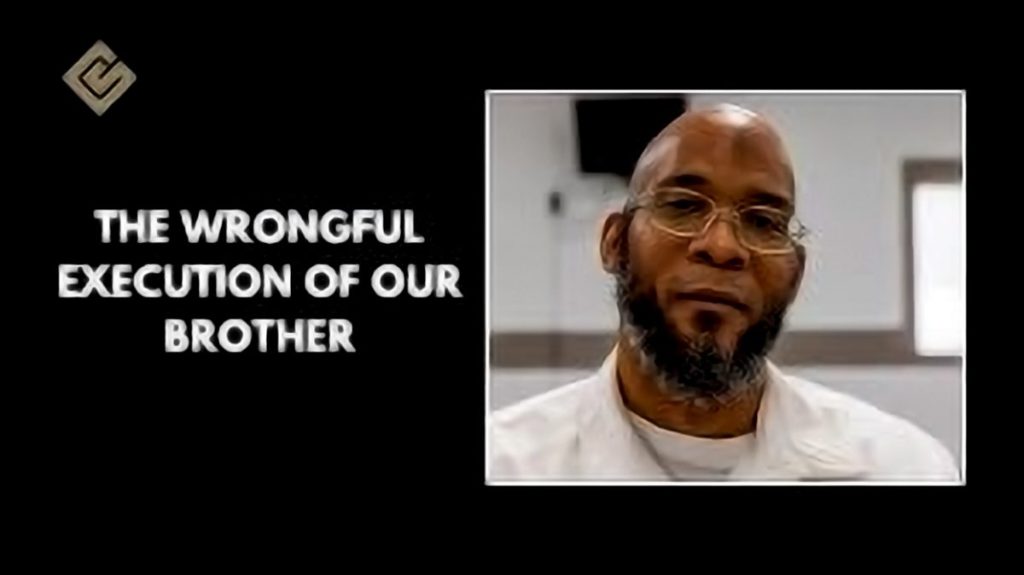In a damning display of justice gone wrong, Marcellus Williams, a Missouri death row inmate, was executed, despite overwhelming evidence suggesting his innocence. His death by lethal injection has sparked outrage, with the blame falling squarely on the shoulders of former President Donald Trump, Senate Minority Leader Mitch McConnell, Missouri Governor Mike Parson, and the conservative U.S. Supreme Court justices who refused to halt the execution.
Williams, 55, was convicted in 2001 for the 1998 murder of Felicia Gayle in her St. Louis apartment. However, no DNA evidence ever tied him to the crime. The St. Louis County Prosecuting Attorney’s Office, which urged a stay of execution, had supported his legal team in its tenacious fight for clemency. The victim’s own family had requested Williams’ sentence be commuted to life without parole, writing, “Marcellus’ execution is not necessary.”
Yet, the conservative majority on the Supreme Court—Chief Justice John Roberts, Neil Gorsuch, Clarence Thomas, Samuel Alito, Brett Kavanaugh, and Amy Coney Barrett—voted to deny Williams a stay. Their decision condemned an innocent man to death, and it is a stark reminder of how deeply broken the justice system has become under their influence. Liberal justices Sonia Sotomayor, Elena Kagan, and Ketanji Brown Jackson dissented, recognizing the glaring miscarriage of justice.
This execution didn’t happen in a vacuum. It is a direct result of the political power play that Trump and McConnell orchestrated. Trump’s appointment of three ultra-conservative justices—Gorsuch, Kavanaugh, and Barrett—solidified a Supreme Court more interested in ideology than fairness. McConnell’s refusal to consider Barack Obama’s 2016 nominee, Merrick Garland, to replace Justice Antonin Scalia was a pivotal move in ensuring this conservative stronghold. He later rushed through Amy Coney Barrett’s confirmation weeks before Trump’s election loss, fully aware of the long-term consequences.

Gov. Mike Parson, a staunch MAGA Republican, ignored every plea for mercy, including those from the prosecutor’s office and over a million citizens and faith leaders who called for clemency. Despite abundant evidence of Williams’ innocence, Parson’s decision to carry out the execution was viewed by many as cruel and motivated by bloodlust.
“This was a lynching. Make no mistake, this was state-sanctioned murder of an innocent Black man,” NAACP President Derrick Johnson declared. “Governor Parson had the responsibility to save a life, and he didn’t. When DNA evidence exonerates a man, capital punishment is not justice—it is murder. Trump, McConnell, and the conservative Supreme Court justices now have blood on their hands.”
Johnson added that Williams’ final moments were a tragic reminder of the human cost of this injustice. Reportedly, Williams lay conversing with a spiritual advisor as the lethal injection took effect. His chest heaved a few times before he went still, as his son and two attorneys watched helplessly from another room. No one from Gayle’s family was present to witness the execution—likely because they had asked for his life to be spared.
Cori Bush, Missouri’s Democratic Representative and staunch opponent of the death penalty, minced no words in condemning Parson’s role. “Governor Parson didn’t just end Marcellus Williams’ life—he demonstrated how the death penalty is wielded without any regard for innocence, compassion, equity, or humanity,” Bush stated. “He ignored the facts, the evidence, and the pleas from all sides. The so-called ‘beyond a reasonable doubt’ standard was tossed out, because Marcellus was a Black man in a system rigged against him.”
Many also said the hypocrisy of the so-called “pro-life” conservatives was laid bare. A U.S. Army veteran and activist, Charlotte Clymer blasted the justices responsible, saying, “These people don’t care about life. They only care about control.”
Williams’ case, much like so many others involving Black men and the death penalty, exposed the deep racial bias embedded in America’s legal system. His attorneys had raised significant concerns about racial discrimination during jury selection, and the lack of credible evidence—especially DNA that didn’t match Williams—only underscored the injustice of his conviction. Yet, the political machinery of Trump, McConnell, Parson, and the Supreme Court moved forward without pause, ensuring his death.
As Bush and others stated, Williams’s death wasn’t just an issue of a broken justice system—this was a political execution. Like Parson, the U.S. Supreme Court chose to ignore the evidence, the pleas, and the humanity of Williams. A litany of social media users posted comments demanding that Williams’ blood is on the hands of Republicans, and the country must reckon with the brutal truth that our highest court, and the leaders who enable it, can no longer be trusted to protect the innocent.
Williams’ execution, despite overwhelming evidence of his innocence, is a searing indictment of a broken system where political power and racial bias outweigh truth and justice, Bush noted. ‘This was not just an execution,” she railed. “This was a state-sponsored lynching, and every person responsible for it must be held accountable.’”




